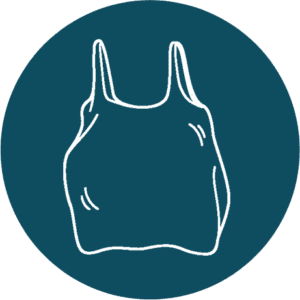Reducing Plastic Waste: How to Implement the PPRA
The State of Colorado’s Plastic Pollution Reduction Act (also known as the PPRA, or House Bill 21-1162) was passed in 2021 to reduce and mitigate plastic pollution in Colorado.
Phase 1 of the PPRA, effective January 1, 2023
Paper and plastic checkout bags distributed at large Colorado retailers are required to incur a fee of at least $0.10 per bag. Consumers are able to skip the plastic bag and paper bag fee by bringing their own reusable bags. The fee is waived for customers who are enrolled in state or federal food assistance programs. If local ordinances call for higher fees or taxes for checkout bags, the fees will be consistent with the higher amount. Find resources to implement the bag fee for municipalities, businesses, and community members.
Phase 2 of the PPRA, effective January 1, 2024
Plastic bags will be banned from distribution at large Colorado businesses (paper checkout bags will continue to be charged a minimum fee of $0.10 per bag). Also starting January 1, 2024, the use of polystyrene foam (often referred to as Styrofoam®) cups and food containers will be banned at retail food establishments.
Why is Colorado banning polystyrene takeout containers and cups beginning January 1, 2024?
Polystyrene is one of the worst plastics for human health and the environment. Learn more about the impacts to public health, the environment, and even restaurants’ bottom lines by adopting plastic reduction practices and complying with the polystyrene ban.
What are the environmental benefits of implementing phase 1 of the PPRA (a fee on single-use checkout bags), and phase 2 of the PPRA (a ban on plastic bags and polystyrene)?
Reducing plastic and paper bag use and eliminating polystyrene takeout containers can save money, energy, water, and trees—and protect Colorado’s rivers, soils, groundwater, wildlife, and livestock from plastic pollution.
 PLASTIC BAGS are made from natural gas. They are one of the most common pollutants found in Colorado’s rivers, and never biodegrade—they only break down into smaller and smaller plastics and get into our water and soils, or are consumed by animals, ultimately ending up in the food we eat.
PLASTIC BAGS are made from natural gas. They are one of the most common pollutants found in Colorado’s rivers, and never biodegrade—they only break down into smaller and smaller plastics and get into our water and soils, or are consumed by animals, ultimately ending up in the food we eat.
 PAPER BAGS require a lot of energy and water to produce. Manufacturing a paper bag takes about four times as much energy as it takes to make a plastic bag. A single paper bag requires one gallon of water to produce, while the mass production of paper bags is contributing to deforestation.
PAPER BAGS require a lot of energy and water to produce. Manufacturing a paper bag takes about four times as much energy as it takes to make a plastic bag. A single paper bag requires one gallon of water to produce, while the mass production of paper bags is contributing to deforestation.
![]() POLYSTYRENE Over fifty chemical byproducts are released during the manufacturing of polystyrene, contaminating the air, water, and communities that work in and live near these facilities. Some of these components are known carcinogens. When disposed of, polystyrene food containers cannot be recycled and are a common type of plastic litter due to their lightweight nature. Polystyrene easily breaks down into small pieces and can cause severe illness or death in wildlife that ingest it. Learn more about the impacts of polystyrene here.
POLYSTYRENE Over fifty chemical byproducts are released during the manufacturing of polystyrene, contaminating the air, water, and communities that work in and live near these facilities. Some of these components are known carcinogens. When disposed of, polystyrene food containers cannot be recycled and are a common type of plastic litter due to their lightweight nature. Polystyrene easily breaks down into small pieces and can cause severe illness or death in wildlife that ingest it. Learn more about the impacts of polystyrene here.



























